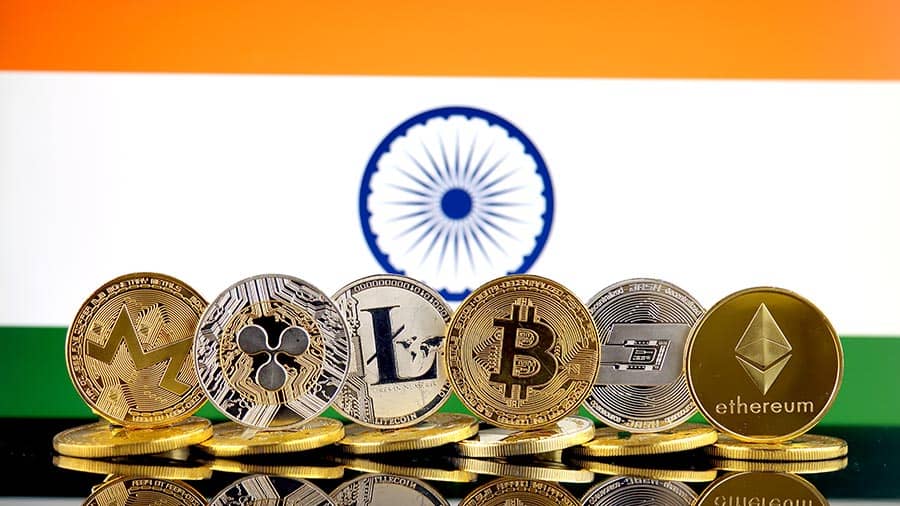Cryptocurrencies as a payment medium are currently unregulated in India, and there are no rules or regulations in place to settle disputes when dealing with cryptocurrency. This lack of regulation has created uncertainty and risk for buyers and sellers in India. However, the recent proposal by India's Finance Minister, Nirmala Sitharaman, to tax digital assets has fueled debate about the legality of cryptocurrencies in the country and has sparked hope for a future path to clear regulation.
The Indian Government
The Indian government has yet to issue an official statement regarding the legality of cryptocurrencies in the country. However, statements by the Reserve Bank of India and government officials suggest that, while cryptocurrency is not explicitly prohibited, it's also not regulated.
The recent Union Budget included a 30% tax on cryptocurrency gains and a 1% tax deducted at source, indicating that the government recognizes and seeks to tax the use of digital assets.
The Cryptocurrency Bill, which would have provided more specific guidelines and regulations for the use of digital assets, was supposed to be introduced during Parliament's Winter Session but was postponed. The Minister of State Finance stated that any legislation on the subject would require significant international collaboration to avoid regulatory arbitrage and that the policy-related ecosystem and crypto assets are under the jurisdiction of the Ministry of Finance.
For a variety of reasons, a path to clear regulation for cryptocurrencies in India is a positive step in the right direction. For starters, it would provide investors and traders in the Indian crypto market with a sense of security and trust. Clear regulations would provide guidelines for the safe and legal use of digital assets, as well as provide Indian investors with a better understanding of the risks associated with cryptocurrency trading. This would increase adoption, especially given India's large population, because more people would be willing to invest in digital assets if they were regulated and safe to use.
Besides that, clear regulations would assist in the prevention of fraud and scams in the cryptocurrency market. Due to a lack of regulation, the market has seen an increase in scam practices, with many people falling victim to fraudulent schemes and losing their hard-earned money. Clear regulations would help to curb these activities and provide investors with a sense of security.
Clear regulations would potentially increase innovation in the digital asset space. The Indian government has been investigating the use of blockchain technology for a variety of purposes, including land record keeping and supply chain management. Clear regulations would create an environment conducive to the growth and development of these applications. This would aid in the development of new business opportunities as well as new technologies.
Clear regulations would aid in preventing regulatory arbitrage and ensuring that the Indian digital asset market meets international standards. Given that the Indian digital asset market is still in its infancy, clear regulations would aid in preventing investors and traders from migrating to countries with more favorable regulations. This will help to ensure that the Indian digital asset market does not miss out on potential investments and business opportunities.
A path to clear regulation for cryptocurrencies in India is a positive step in the right direction because it will provide investors and traders with a sense of security and trust, aid in the prevention of fraud and scams, lead to increased innovation in the digital asset space, and ensure that the Indian digital asset market meets international standards. This will result in greater adoption of digital assets in India, especially given the country's large population.
The Indian government's recent proposal to tax digital assets, as well as the ongoing debate in the country about the legality of cryptocurrencies, are steps in the right direction toward clear regulation. It is critical for the government to continue working to create a favorable environment for the growth and development of digital assets in India, as well as to ensure that the Indian digital asset market meets international standards.
Will cryptocurrency become legal in India? In my opinion, it's just a matter of time until it does. Blockchain technology has the potential to greatly benefit a country like India in a number of ways. Firstly, it can improve transparency and efficiency in government systems and processes, such as in land record-keeping and supply chain management. It can help to curb corruption and fraud by providing tamper-proof, decentralized systems.
Blockchain technology can also enable financial inclusion by providing unbanked Indians access to financial services through digital currencies and smart contracts. It can also help in the development of new business opportunities and the growth of the tech industry in the country.
The implementation of blockchain technology can help to bring about positive socio-economic changes in India and promote the country's development as an emerging economy with its 1.4 billion people.
Matt is the founder of TechMalak. When he's not buried face-deep in the crypto charts you can find him tinkering with the latest tech gadgets and A. I tools. He's a crypto investor and entrepreneur. He uses a mixture of A.I and human thought and input into all his articles on TechMalak, further merging man with machine.





